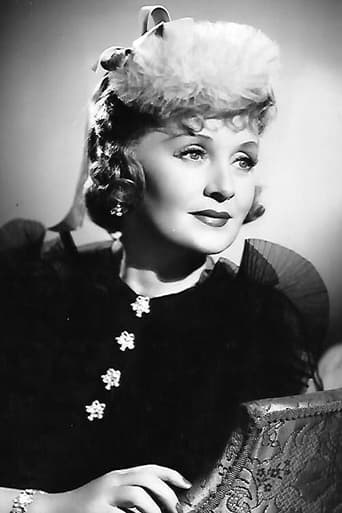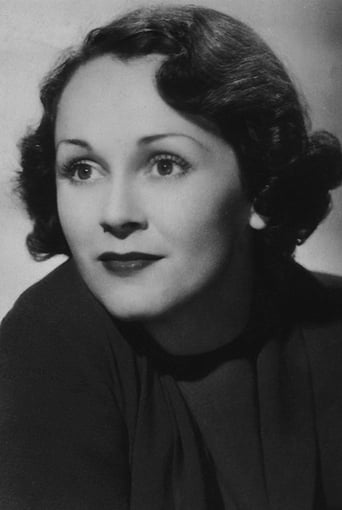overseer-3
"Only Yesterday" was simply outstanding! One of the best pre-code movies ever made. Margaret Sullavan received the chance of a lifetime in this plum role as a simple, trusting young girl who loves a soldier (John Boles) during World War One, becomes pregnant by him during a one night stand, and when he returns he doesn't recognize her (or perhaps more cruelly, pretends he doesn't). In disgrace she is sent to her independent minded aunt in New York City, who gets her a job and helps her get on her feet again and raise her child. Billie Burke is absolutely delicious in the role and Reginald Denny charmingly plays the younger man who is in love with her and devoted to her. A delightful scene with them at the piano together had me grinning from ear to ear and saying "Awww....that's so cute!" How refreshing that Hollywood knew how to charm audiences in those days with extra little scenes like this as comic relief.The rest of the cast is stellar, and boasts MANY fine actors in cameo appearances who were popular in the silent days of cinema. Just see how many you can recognize now in the sound era, milling about in the suspenseful crowd scenes, including Marie Prevost, Jason Robards Sr., Louise Beavers, Joyce Compton, Ruth Clifford, Walter Catlett, Arthur Hoyt, George Hackathorne, King Baggot. Even Irene Dunne in a bit part. This must have been seen as a big production for this studio, to have all these stars in one picture.Special mention also goes to child actor Jimmy Butler who played the young son. What an terrific natural actor he was! After seeing him in this I sought out other films he was in and discovered he was exceptional in those films too. Unfortunately he died as a soldier in Europe in the last year of World War Two, dead way too soon for a young lad.This film has never been put on VHS or DVD. I was reduced to buying a bootleg of it, which I hate to do, but if these video and DVD companies refuse to spend the money to put these pre-code masterpieces out on the market, that is what the old time film fan has to resort to in order to obtain a film they long to see. A shame.I gave this film a 10 out of 10.
lugonian
"Only Yesterday" (Universal, 1933), directed by John M. Stahl, marks the movie debut of stage actress, Margaret Sullavan. Capitalizing on the recent success of the first of three screen adaptations to Edna Ferber's romance drama, "Back Street" (1932), also directed by Stahl, and featuring Irene Dunne and John Boles, "Only Yesterday" improves over its predecessor in mood and drama, holding a viewer's interest even during its 108 minute length. In 1934, Universal and Stahl scored box office gold again with "Imitation of Life" starring Claudette Colbert and Warren William, followed by the 1935 version to "Magnificent Obsession" with Irene Dunne and Robert Taylor. With the exception "Only Yesterday," all the movies mentioned above remain memorable mainly because of its latter remakes, for that "Only Yesterday" not only never got remade, it's hardly ever reissued either television or revival theaters, making this a real curio for classic movie lovers.The story opens during the stock market crash of October 1929, causing many stockholders to go penniless and to blink of suicide. James Stanton Emerson (John Boles) has become one of the victims of the crash. He returns home where his wife, Phyllis (Benita Hume) is hosting a dinner party. Not wanting to tell the guests about the stock market, James locks himself in the other room, takes out his gun, writes a suicide note to Phyllis informing her that he cannot live on. But as he is about to do himself in, he notices a letter addressed to him left on his desk marked "URGENT." After opening and reading the letter, Jim thinks back twelve years ago when he was a young lieutenant who meets Mary Lane (Margaret Sullavan) in a party in Virginia. They dance, leave and disappear into the night. Upon their return, the couple find the party to be over. They bid each other goodnight and plan to see each other again. Later, Jim receives orders to report to France with his troops. Afterwards, Mary learns that she is pregnant, and to avoid a possible scandal, she leaves her family to go live with her Aunt Julia (Billie Burke) in New York City. After giving birth to a son the very day the World War ends, Mary tries to locate Jim to tell him the news, but when their paths cross again, on two different occasions, he fails to recognize her, thus leaving Mary to go it alone and raise the boy herself. After finishing reading the letter, Jim realizes there is something more important than himself to think about.The large cast listed in this photoplay include many familiar faces such as Reginald Denny as Bob; Edna May Oliver (mispelled Edna MAE Oliver in opening and closing credits) as Leona Maynard; Jimmy Butler as Jimmy Jr.; Marie Prevost as Amy; with Louise Beavers, Franklin Pangborn and Berton Churchill. During the course of the story, nostalgic tunes are heard, featuring: "Shine On, Harvest Moon" (sung by Billie Burke); "Remember" (by Irving Berlin, played on piano by Reginald Denny); and "Tip Toe Through the Tulips" (sung by Billie Burke). Although Universal could have easily reunited Irene Dunne and John Boles, stars of "Back Street" into this collaboration, since many supporting players from that film were reunited here, including George Meeker, June Clyde, Walter Catlett, Robert McWade and Jane Darwell, the introduction of the youthful Margaret Sullavan gives this story a whole new different outlook, making this a worthy beginning to a fine actress in a very sensitive performance. Sullavan would star in other Universal dramas, especially the 1941 remake to "Back Street," but she is best remembered for her numerous films produced at MGM, particularly "The Shop Around the Corner" (1940) with James Stewart. While John Boles is usually works well in light musicals and comedies, and often type-cast as a neglected but caring husband or "Mr. Nice Guy" in other films through most of the 1930s, it's sometimes hard to accept him playing a man of the world on furlough who seduces innocent young women and unintentionally forgetting about them, a kind of movie role better suited for the Warren William-type of actor. After seeing this production in a very rare TV showing (WNET, Channel l3, New York City, in 1983), two things come to mind: The youthful Margaret Sullavan's unforgettable performance, the other being the question as to why "Only Yesterday" remains to this day a very obscure film. (***1/2)





